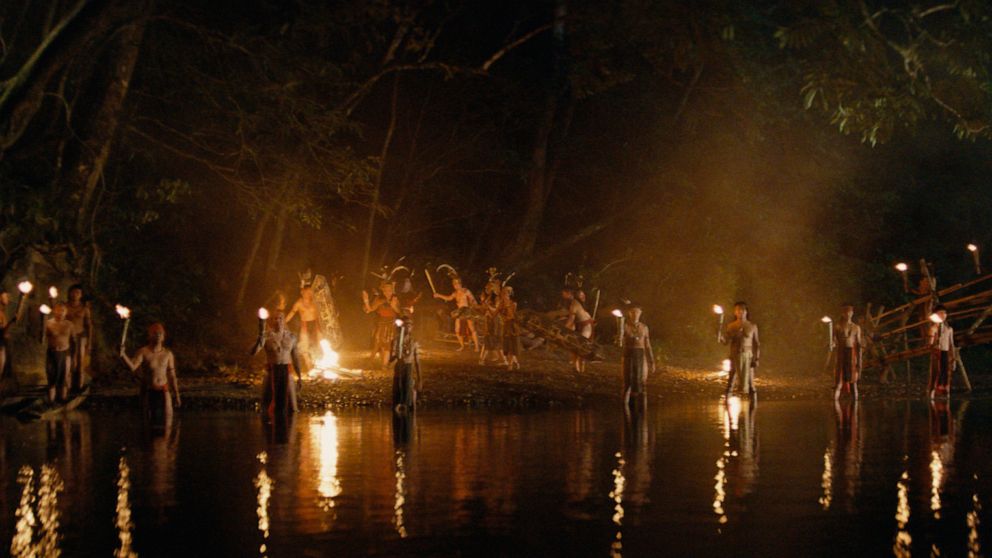
Review: A familiar adventure story in ‘Edge of the Word’
ABC News
If the new adventure film “Edge of the Word,” about a British explorer and soldier in 1840s Borneo, seems suspiciously like “The Man Who Would Be King” and “Lord Jim,” it’s for good reason
If the new adventure film “ Edge of the Word,” about a British explorer and soldier in 1840s Borneo, seems suspiciously like “The Man Who Would Be King” and “Lord Jim,” it’s for good reason. It was the inspiration for both. Both Rudyard Kipling and Joseph Conrad were moved by the true story of James Brooke, a former soldier in the Bengal Army who would become the Raj of Sarawak at the height of the British Empire. Brooke’s family ended up governing there for a century. Brooke’s story may have provided the foundation for a lot, but the other novels and films came first and became classics in the process — not to mention everything they then informed and inspired. It’s not that Hollywood hasn’t tried to give Brooke his due. Even Errol Flynn was supposed to play him at one point. On one level, it’s impossible for “Edge of the World” not to feel like homage. At the same time, director Michael Haussman (a prolific music video director) and screenwriter and producer Rob Allyn (for whom this has been a passion project) make the smart choice to simply lean into the canon instead of trying to forge a new path. It’s not just story beats that feel familiar, but visual cues as well. Terrence Malick’s “The New World” may have been the filmmakers’ most cited touchstone. The always intense Jonathan Rhys Meyers stars as Brooke, a wanderer by nature who has never felt at home in Victorian England. Born in India and once a soldier, he’s seen enough to know what he’s not looking for and thus takes his inheritance and funds wild missions with his pals. He’s also decidedly more modern than many of his peers in terms of how he views colonialism and is fascinated by other cultures, not as conquests for an empire, but on their own terms. Even so, he shares some views with his countrymen about “civilizing” the more “savage” aspects of some of the native people he encounters.More Related News
